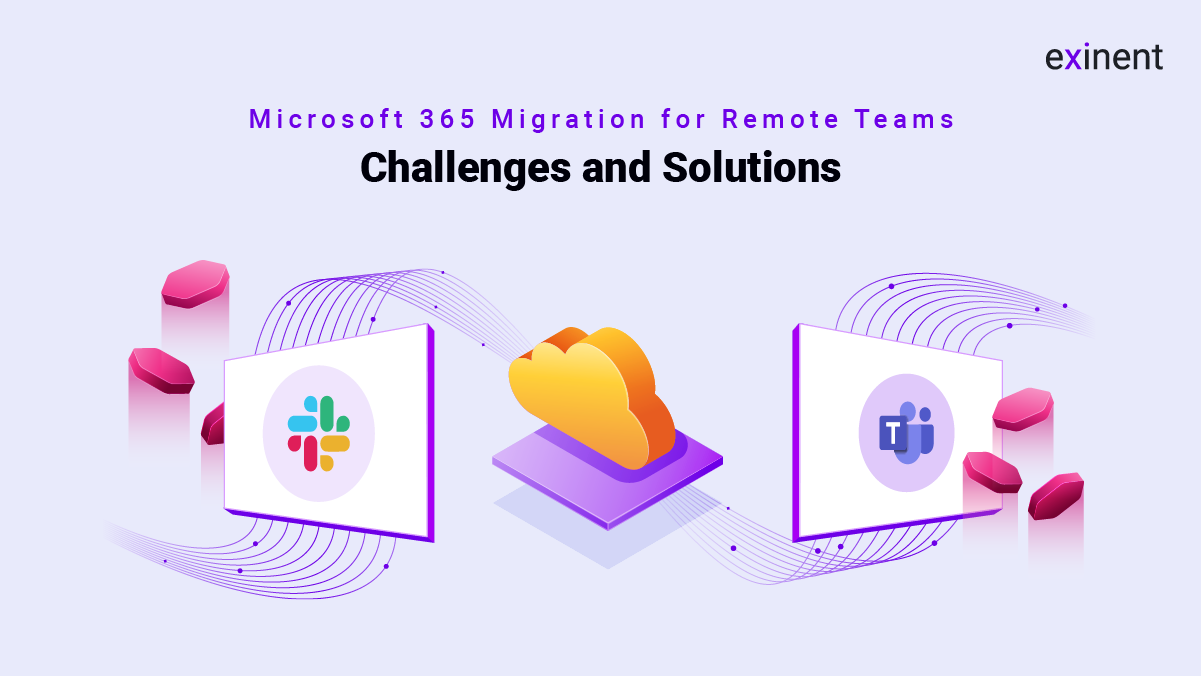
In today’s fast-paced digital world, many organizations are transitioning to cloud-based solutions to enhance productivity and collaboration. One such powerful platform is Microsoft 365, which offers a suite of tools designed to streamline operations and facilitate seamless communication. However, migrating to Microsoft 365 can be particularly challenging for remote teams. This blog explores the challenges faced during Microsoft 365 migration for remote teams and provides practical solutions to address these issues effectively.
Understanding the Microsoft 365 Migration Challenge for Remote Teams
Migrating to Microsoft 365 involves more than just transferring data; it requires careful planning and execution, especially for remote teams. Here are some common challenges faced during this process:
- Connectivity and Bandwidth Issues: Remote teams often work from various locations with varying internet connectivity. During migration, poor internet speed or unreliable connections can disrupt data transfer and affect productivity.
- Data Security and Compliance: Ensuring that sensitive data remains secure and compliant with regulations is crucial during migration. Remote teams may face challenges in maintaining data integrity and security when moving from on-premises systems to the cloud.
- User Training and Adoption: Transitioning to a new platform like Microsoft 365 requires effective training to ensure that all team members can use the new tools efficiently. Remote teams may struggle with consistent training and onboarding due to geographical dispersion.
- Integration with Existing Systems: Remote teams often rely on various tools and applications. Integrating these with Microsoft 365 can be complex, especially if existing systems are not compatible or require significant adjustments.
- Communication and Coordination: Managing a migration project with a geographically dispersed team can be challenging. Coordinating efforts, tracking progress, and resolving issues in real-time can be more difficult without face-to-face interactions.
Solutions for a Smooth Microsoft 365 Migration
To address these challenges and ensure a successful migration, consider the following solutions:
- Enhance Connectivity: Before starting the migration process, assess the internet connectivity of all remote team members. Invest in solutions that can help optimize bandwidth and ensure stable connections during data transfer. Additionally, consider scheduling migration activities during off-peak hours to minimize disruptions.
- Prioritize Data Security and Compliance: Work with your IT team to implement robust security measures during migration. Use encryption and secure transfer protocols to protect sensitive data. Ensure compliance with relevant regulations by conducting regular audits and setting up access controls within Microsoft 365. Tools like Microsoft Compliance Manager can assist in maintaining regulatory standards.
- Implement Comprehensive Training Programs: Develop a structured training plan that includes virtual workshops, tutorials, and resources to help remote team members get acquainted with Microsoft 365. Provide ongoing support and create a knowledge base where team members can find answers to common questions. Regularly update training materials to reflect any changes or new features.
- Facilitate Seamless Integration: Evaluate the compatibility of your existing tools with Microsoft 365 before migration. Use integration tools and services to bridge any gaps between your current systems and the new platform. Collaborate with IT experts to develop custom solutions if necessary, ensuring a smooth transition and minimal disruption to your workflow.
- Improve Communication and Coordination: Leverage collaboration tools within Microsoft 365, such as Teams and SharePoint, to enhance communication and project management. Set up regular virtual meetings and progress updates to keep everyone informed and aligned. Use project management tools to track milestones and address issues promptly.
The Role of Exinent in Your Microsoft 365 Migration
At Exinent, we understand the unique challenges that remote teams face during Microsoft 365 migration. Our expertise in cloud solutions ensures a smooth transition with minimal disruption to your operations. We offer tailored migration services, including connectivity assessments, data security implementation, comprehensive training programs, and integration solutions. Our goal is to help your remote team seamlessly adopt Microsoft 365 and fully leverage its capabilities to enhance productivity and collaboration.
Conclusion
Migrating to Microsoft 365 can significantly benefit remote teams by improving collaboration, communication, and productivity. However, addressing the associated challenges requires careful planning and execution. By focusing on connectivity, data security, training, integration, and effective communication, you can navigate these challenges successfully. With Exinent by your side, you can ensure a smooth migration process and empower your remote team to thrive in the digital workspace.
For expert assistance with your Microsoft 365 migration, contact Exinent today and let us help you unlock the full potential of your cloud-based solutions.
